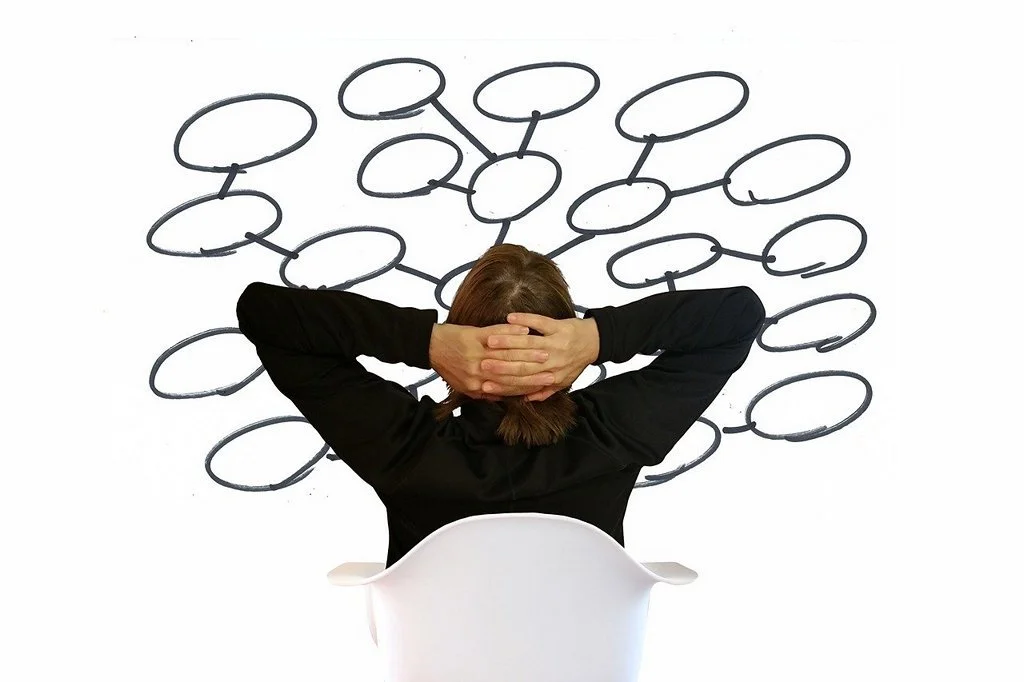Quick Decision-Making: What to Do When You Can’t Decide
To be or not to be?
To do or not to do?
This way or that way?
Yes or No?
Which one is better?
Toss or Keep?
Every single day is all about making choices and using our minds.
From the moment we open our eyes in the morning until we lie in bed and shut our eyes at night.
We make small and big decisions.
It could be the colour of socks and the clothes we wear, the foods we eat, the chores and tasks we do, the route we take going to and from places, the schools we decide to go to or our kids to, the places we wish to go on holidays.
The things we subject ourselves to make our minds are never-ending. Every single thought, movement, and action is a decision we have to make. According to numerous online sources, an average person makes about 35,000 decisions per day.
What? 35,000?!!!
Do you imagine yourself being subjected to such tremendous efforts of decision-making every single day?
It feels exhausting just the mere thought of it. Right?! For people like my recovering self, who tends to overthink situations and actions, 35,000 could easily be doubled, which can be counterproductive and exhausting.
I have written this blog post to share with you the tips I have learned and used in helping me make swift decisions, big or small, that I will not regret.
These tips are also quite useful in the areas of decluttering and organising. A professional organiser like me relies heavily on clients to make decisions before we finalise proposed systems and solutions for a particular project. These will provide you with some guidance on making decisions quickly, especially in moments when you can’t decide.
Let's get into it! Shall we?
1. Face the fear
If you are yet to realise this, let me remind you. The odds don't always go in our favour in every single thing we do, and that includes the decisions we make, significant or not.
It's like the mantra of life; sometimes you win, sometimes you lose.
As long as you work on your facts and decide based on your assessment or gut feelings, you will have the courage to face that fear of the unknown.
Remember, it's better to try and not try at all.
2. Make a routine
Routine isn't just about boosting productivity outcomes, but it also helps you with your day-to-day governance.
Do you ever wonder why Steve Jobs, Mark Zuckerberg, and Nas Daily wear the same thing over and over again?
Why does Jay Shetty eat the same breakfast every single day? It's simple; they want to simplify their lives.
They preserve their precious energy and allocate it to the rightful moments.
They reduce the complications of the trivial stuff and prioritise the real deal of decision-making.
3. Make a map
If you are the type who is easily lost in the complexities of decision-making, make use of a mind map that will allow you to relax your mind and have a clearer picture of what needs to be tackled.
There are numerous techniques you can use depending on how basic or complicated information you wish to extract from a scenario in order to make those precious decisions.
It could be a simple pro and con list comparison, or you can make use of some advanced techniques.
Below are some tools that I have used - personally and professionally, that you may wish to try.
But if below techniques bore you, just stick to what you know best and keep things simple.
4. Cut the analysis paralysis
This is not a contradiction of the map, as suggested in #4.Analysis paralysis is simply the act of thinking over and over again without reaching any kind of resolution.
Do you know one of the main culprits of decision procrastination or delaying information is analysis paralysis?
Not knowing the specifics often leads to this paralyzing state of thinking and overanalyzing.
Know when to finalize your map and stop the analysis to reach your resolution and conclusion.
5. Trust your instincts
We sometimes need external parties to influence our decision-making. That's very normal. It's important to get others' points of view to weigh our choices.
However, at the end of the day, the decision will come from us. Trust your instincts, and more often than not, it will lead you to where you need to be.
If something or someone tells you the decision you made wasn't the right one... take a deep breath, learn from it, and move on.
6. Is it worth the worry?
Every time I notice myself in an analysis paralysis mode, I will ask this question to myself...Will this matter to me years from now?
If the answer is no, then there is no need to waste more time thinking about what choice to make.
If the answer is yes, then yes, I will allow myself to have the time to assess all my possible options and decide from there.
But...I will see to it to apply the next tip.
7. Make a D-day (Deadline)
This is the ultimate decision deal maker or breaker.
Notice this: when you put a deadline on something, you tend to be more mindful of how to come up with the best possible outcome.
Having a mindful timeline and deadline to work on will force you to make the decision you are dreading.
I have a lot of milestone decisions that allowed me to skip the analysis paralysis stage because I have given myself an ultimatum to make those decisions.
I had great outcomes on some, but I won't deny there were a lot of not-so-good ones, too, which I attribute to my learning experiences.
8. Back to basics
It’s not hard to make decisions when you know what your values are. (Roy Disney)
Know your values. Just going back to your roots will allow you to be grounded and will give you the confidence to make those small or BIG decisions.
I have been subjected to a number of scenarios where the only answer for many would be a loud roaring "YES", but after evaluating my specific situation and contemplating my values, I have not hesitated to say my firm "NO".
I even had to challenge and assess myself after to check if I was a crazy nut, but it just reverts me to my reason of being - my values and my priorities.
Final Thoughts
Ultimately, quick decisions are about being aligned and not about being impulsive. When you know your destination and trust your internal map, you don’t need to waste so much energy on overthinking every single step on the road. You just take the next clear step. So the next time you feel stuck, pause, glance at your map and choose what moves you forward, even a tiny teeny step.
Because clarity doesn’t come from waiting, it comes from doing.
Let’s keep mapping!



